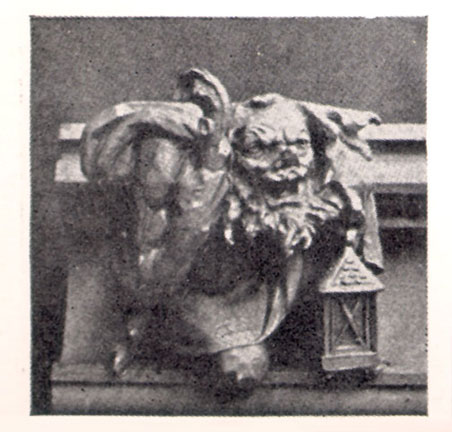Morris R. Cohen in Retrospect
By Ernest Nagel
The decade that has elapsed since the death of Morris R.
Cohen has been crowded with events that have transformed in
important ways the world which heard his living voice. During
his lifetime he appeared to many of
us who knew him personally, or even only through his writings,
as a thinker of first-rate importance on the American scene.
It is perhaps inevitable that a man's stature should seem
less large to succeeding generations
than it does to his own contemporaries. Indeed, if frequency
of references to him in the current literature is a safe basis
for judgment, it must be admitted that few professional philosophers
continue to read Cohen or to be
influenced by his ideas. However this may be, it still seems
to me, looking back across these ten years, that the estimate
we then formed of him is not simply the product of a myopic
perspective, and that Cohen's conception of
philosophy and his contributions to it continue to be of the
highest value even in this altered world we now inhabit. It
is fitting on this occasion to recall the philosophical ideals
Cohen represented, and to indicate if only briefly why his
memory deserves to be cherished by all who prize the achievements
of intellectual excellence. Cohen did not think of philosophy
as a discipline competing with the various sciences for obtaining
authentic knowledge of the world about us. He did not believe
that philosophy yields positive information about the primary
subject-matters of the sciences, or that it possesses special
sources of truth which enable it to pass judgment on the factual
claims of science and to set bounds to the scope of its methods.
As he conceived and practiced it, philosophy is the disciplined
critical reflection upon the interpretations men place on
the primary material of their experience—interpretations
which are codified in the bodies of knowledge we call the
sciences, in the system of rules we designate as morals or
problems.
He was fond of noting the vigor and impressive accomplishments
in the history of civilization of so-called "mixed races."
Analagously, his own thought was vigorous and stimulating,
in considerable measure because he did not fear contamination
from exposure to concrete subject-matters, and because he
pursued the task of criticism and clarification without hesitating
to cross conventional boundaries between disciplines. He possessed
unusual historical erudition, and did much to encourage inquiry
into neglected sectors of intellectual history. But he did
not think of philosophy as being primarily the custodian of
the sacred cows of philosophical schools, whether ancient
or modern; and he did not fall victim to the folly of supposing
that a historical account of an idea is a substitute for an
analysis of the idea's adequacy and truth.
In the light of all this, it is perhaps superfluous to add
that Cohen prized and extolled the role of reason in the development
of civilized life. Reason as he conceived it is not a substantial
agent, which generates whateverorder there is in the world,
but is a type of behavior manifested by certain organisms.
He was fully aware that the rational element does not exhaust
the dimensions of human life. But he was fully convinced that
it is through the exercise of our capacity to reflect, to
trace out the consequences of beliefs, and to test them against
the flux of experience, that human life acquires dignity and
nobility. Cohen was not one to jump on band wagons, whether
radical or conservative, and he neither followed not led the
current intellectual fashions. He was true to his ideal of
the intellectual in society—an ideal which required
of the philosopher not that he be a bellwether leading men
into what is so often disaster, but that he be a dispassionate
critic of established beliefs and institutions who sifts the
grain from the chaff.



